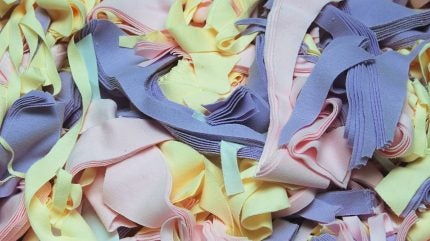
Under this collaboration, NFT will provide Reju with secondary raw materials sourced from both used and unused textile waste for the purpose of recycling and producing Reju Polyester.
The two companies will work together to enhance the infrastructure for collecting and processing textile waste generated from both post-consumer and post-industrial sources. The partnership will facilitate an open supply chain that ensures 100% traceability of the recycled materials involved.
Backed by Technip Energies and leveraging technology developed through IBM research initiatives, Reju seeks to create a global circular ecosystem for textile recycling that addresses the presence of PET plastics within textiles.
Currently, Reju is developing systems to regenerate textile waste on a large scale, beginning with polyester. The resulting product, known as Reju Polyester, is projected to have a carbon footprint that is 50% lower than that of traditional virgin polyester and can be regenerated indefinitely.
Reju’s initial demonstration facility, named Regeneration Hub Zero, is operational in Frankfurt, Germany, with plans to produce Reju PET by 2025.
Materials provided by NFT will be processed at Reju’s Regeneration Hub Zero in Frankfurt and at future Reju facilities across Europe.
Reju CEO Patrik Frisk said: “With the collection of textile waste mandatory in the European Union starting in 2025, it is imperative we have scalable systems and partnerships to process what is collected and keep it from landfills or incineration.”
The Waste Framework Directive (WFD) requires that, starting in 2025, all EU Member States must implement separate collection systems for used textiles.
In 2020, the EU produced approximately 6.95 million tonnes of textile waste. Of this total, 82% consisted of post-consumer waste, while the remaining portion came from textile production processes or unsold goods.
NFT was established through a collaboration between Tissages de Charlieu Groupe and Synergies TLC.
In November 2023, NFT and its partners launched a semi-industrial site and research centre dedicated to textile recycling. This pilot line integrates automated sorting technologies from Pellenc ST with tearing lines from Andritz to process significant volumes of post-industrial and post-consumer textile waste.
This setup aims to eliminate challenging components while converting waste into industrial-grade fibres and raw materials suitable for new recycling technologies like those employed by Reju.
Additionally, NFT supplies secondary raw materials to various sectors including non-wovens, insulation, composites, plastics, and other textiles.
Further, plans are already underway for NFT to develop a second material preparation plant anticipated for completion in 2026. This facility is expected to handle 20,000 to 30,000 tonnes of post-consumer textiles annually and generate approximately 30 direct employment opportunities.
Nouvelles Fibres Textiles co-directors Eric Boël and Etienne Wiroth said: “Our partnership with Reju paves the way for the permindustry: a circular, more local, less carbon-intensive, and more collaborative industry—essentially, an industry that does good.”
In October, Reju teamed up with Goodwill Industries International (GII) and WM, an environmental solutions provider, to enhance textile recycling efforts across North America.



